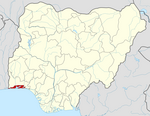Powers and duties
The Chief Judge is the highest judicial officer in the state, and acts as a chief administrative officer as well as spokesperson for the judicial branch. [4] The Chief Judge presides over oral arguments before the court. When the court renders an opinion, the Chief Justice—when in the majority—decides who writes the court's opinion. The Chief Justice also has significant agenda-setting power over the court's meetings. The Chief Judge sets the agenda for the weekly meetings where the justices review the petitions for certiorari, to decide whether to hear or deny each case. [5]
Superiority
The Chief Judge is considered to be the justice with most superior, independent of the number of years of service in the High Court. The Chief Judge, therefore chairs the conferences where cases are discussed and voted on by other judges in the state. The Chief Judge often speaks first, and so has influence in framing the discussion. The Chief Judge sets the agenda for the weekly meetings where the justices review the petitions for certiorari, to decide whether to hear or deny each cases in the years to come. [6] The Chief Judge serves as the commission's chairman. [7]
Oath of office
The Chief Judge typically administers the oath of office at the inauguration of the Lagos State Governor. [8] In a situation where the Chief Judge is ill or incapacitated, the oath is usually administered by the Attorney General. Also the Attorney General typically administers the oath of office at the inauguration of the Chief Judge. [9] In addition, the Chief Judge normally administers the oath of office to newly appointed and confirmed associate judges. [10]
History
The Lagos State Judiciary is the first established Judiciary in Nigeria and formerly known as Colony Province Judiciary. Magistrate court was the first to be established among others. It was established before the High court, that was formerly referred to as the Supreme Court but and its jurisdiction was localized. [11] The establishment of the Magistrate court give birth to the High court, the then Lagos State Supreme Court. [12] When the Supreme Court of Nigeria was founded, the Lagos Supreme Court metamorphosed into High Court of the Federal Territory Lagos with concurrent appointment of John Taylor as the Chief judge. [13]
On 27 May 1967, the same year Lagos State was formed, the High Court and the Magistrate Court of the Federal Territory were merged to form the Lagos State Judiciary under the Leadership of John Taylor, the pioneer Chief Judge of Lagos State. [14] [15] Taylor's tenure elapsed on 7 November 1973 and was succeeded by Justice Joseph Adefarasin following his appointment that took effect on 1 November 1974. [16] He served in that capacity for 9 years until 24 April 1985 when is tenure ended. [17] He was succeeded by Justice Candide Ademola Johnson, appointed on 25 April 1985, a day after Justice Joseph left the office. [18] He spent 4 years in office and Justice Ligali Ayorinde succeeded him on 10 July 1989. [19] He served in that capacity for 6 years I.e between July 1989 to April 1995. [20] [21] The first woman to be appointed was Rosaline Omotosho, who served from 12 April 1995 to 27 February 1996. [22]
On 20 October 2017, the Governor of Lagos State Mr Akinwunmi Ambode appointed Hon Justice Opeyemi Oke as the New Chief Judge of Lagos State. This was after the erstwhile Chief Judge Oluwafunmilayo Olajumoke Atilade attained the mandatory retirement age of 65 years. [23]
On 10 June 2019, Honorable Justice Kazeem Alogba was appointed as the acting Chief Judge of Lagos State by His Excellency, Babajide Sanwo-Olu, the Governor of Lagos State. On 21 August 2019 he was confirmed and sworn in as the 17th Chief Judge of Lagos State. [24]
This page is based on this
Wikipedia article Text is available under the
CC BY-SA 4.0 license; additional terms may apply.
Images, videos and audio are available under their respective licenses.
